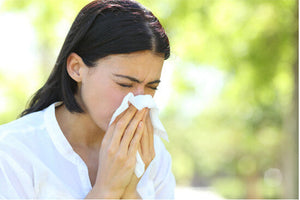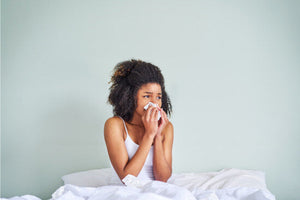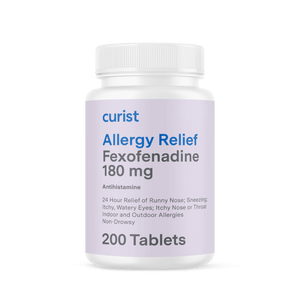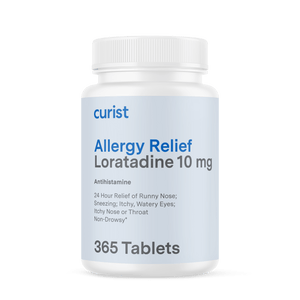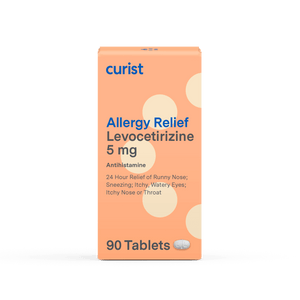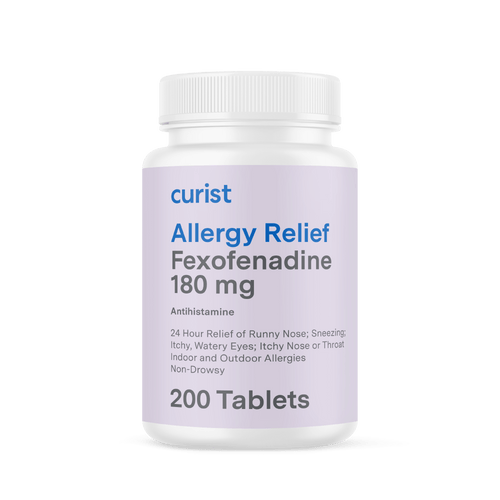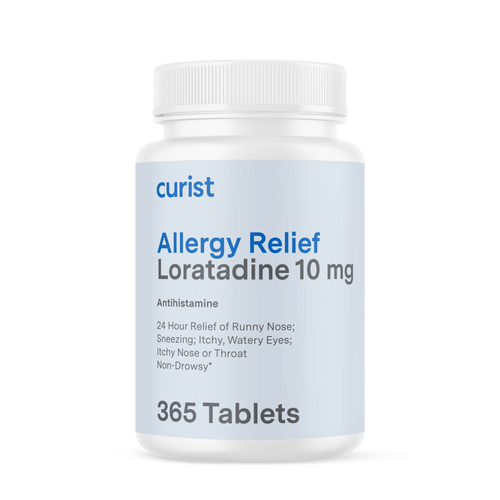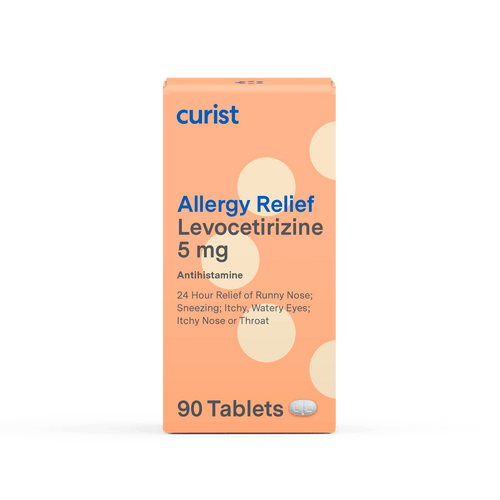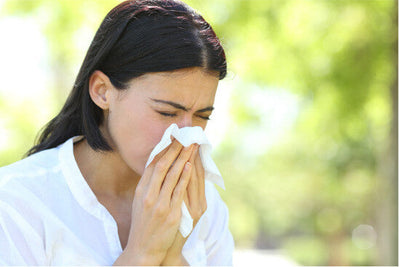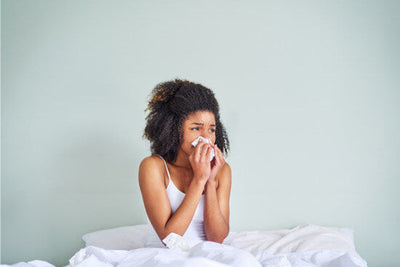by Dr. Marc Goldstein, MD, Curist Allergy Advisor
Curist delivers over-the-counter medicines to your door at a fraction of the price of traditional brands. We hope everyone stays safe and healthy during this time.
Why You Should Hate Histamines
Every time you experience allergy symptoms, it is the result of “histamines.”
Histamines are the natural chemicals that your body releases in response to an allergen, causing swelling, mucus secretion, or any number of other symptoms you’ve come to expect from your allergies.
Histamines are released in the nose, eyes, skin, chest, and GI tract during allergic reactions. In the eyes, they can cause itching. In the nose, histamines can cause sneezing, itching, and watery mucus in the nose. In the lips, roof of the mouth, and back of the throat, histamines produce itching and/or swelling. In the skin, they can produce hives.
Fortunately, there is a medicine that counteracts the behavior of histamines. These medicines are appropriately named “antihistamines.”
And You Should Love Antihistamines
Antihistamine medications have some similarities in their chemical structure to histamines. Antihistamines work by attacking the same receptors on cells that histamines bind to. By occupying these sites, antihistamines block the effect of histamines that cause allergic symptoms. As a result, they treat allergy symptoms like itching, sneezing, itchy eyes, itchy nose, runny nose, and itchy throat. Antihistamines can also help with itching associated with skin rashes like hives and eczema.
How Often Can Antihistamines Be Used?
Antihistamines can be taken everyday to keep daily symptoms under control. Depending on when symptoms flare, they can be taken through the pollen season, for instance in the spring and fall, or they can be taken only when symptoms occur on an as-needed basis.
Antihistamines can be helpful if taken in advance of exposure to allergens that trigger symptoms. For instance, taking anithistamines a few days prior to the start of pollen season or before visiting your friend who has a cat or dog.
Zyrtec vs. Allegra vs. Claritin vs. Xyzal
There are many different formulations of antihistamines that are available without a prescription. They vary in two major ways (1) how long they last per dose and (2) whether they cause drowsiness.
Some newer antihistamines, known as second generation antihistamines, cause less sleepiness than older products. Examples include cetirizine (brand Zyrtec), fexofenadine (brand Allegra), levocetirizine (brand Xyzal) and loratadine (brand Claritin). These antihistamines usually last 12 to 24 hours. Everyone’s body is different so there unfortunately is not a magic formula to determine which antihistamine works best for each person.
Cetirizine is the most potent of the antihistamines having the strongest binding to histamine receptors but can have a mild sedative effect in some individuals, so it’d be best to take at nighttime. That said, cetirizine may not have the strongest effect in everyone’s body.
As the leading antihistamines available and those often recommended by allergy doctors, Curist sells each of these antihistamines at prices significantly less than the brand-name prices.
What About Benadryl?
Benadryl (diphenhydramine) is a very effective older (first-generation) antihistamine that has been available for over 40 years. It lasts for only 4 to 6 hours, unlike the newer antihistamines that last 12 to 24 hours. Benadryl can be very sedating and also has a drying effects that may be problematic for some individuals. Because of its sedation, Benadryl should not be taken before people drive or use heavy machinery, which is not a concern with the newer antihistamines like cetirizine, fexofenadine, and loratadine. Benadryl may also be helpful to control nausea and prevent motion sickness. The newer antihistamines do not have this effect. Benadryl is also sometimes used to help people who have trouble sleeping because of its sedative effects.
To learn more about the differences between levocetirizine (brand Xyzal) and diphenhydramine (brand Benadryl), check this out.
Are Antihistamines the Same as Decongestants?
In general, antihistamines have a very limited decongestant effect for swelling in the nasal passage. They are generally not used if your main symptoms are congestion in the nose or sinus pressure headache.
What Should I know When Taking Antihistamines?
For starters, you should understand that antihistamines are for symptomatic treatment only. In other words, they do not prevent the underlying immune problems associated with allergy. Even though they counteract the histamines in your body, they will not stop your immune system from producing more histamines. It is also always important to look out for potential interactions and side effects as listed on the Drug Facts.
- Alcohol can increase the drowsiness associated with some antihistamines, especially Benadryl.
- Benadryl is more likely, because of its sedative effects, to interact with other medications as well and may affect alertness.
- Caution is advised when taking Benadryl with sleeping medicine, sedatives, and muscle relaxants.
The second generation antihistamines like loratadine, fexofenadine, and cetirizine are less likely to interact with other medication.
Special precaution should be taken with antihistamines, if you have certain underlying conditions. These include:
- increased pressure in the eye (glaucoma)
- enlarged prostate or problems urinating
- seizure disorder
- over-reactive thyroid
- heart disease or hypertension and diabetes.
Do Antihistamines Come with Side effects?
Side effects that are reported with antihistamines include dizziness, dry mouth, drowsiness, feeling nervous, excited or irritable, changes in vision such as blurry vision, and decreased appetite.
These symptoms are often not experienced with the second generation non-sedating antihistamines like loratadine, fexofenadine, and cetirizine. Please see the Drug Facts for more detail.
How to Store Over-the-Counter Antihistamines
Store all medicines out of the reach or sight of young children. Keep them in a cool and dry place so that they do not lose their effectiveness. Avoid storing antihistamines in the bathroom for an extended period of time where they can get hot and be affected by heat and humidity, which can lead to decrease in potency of the products.


